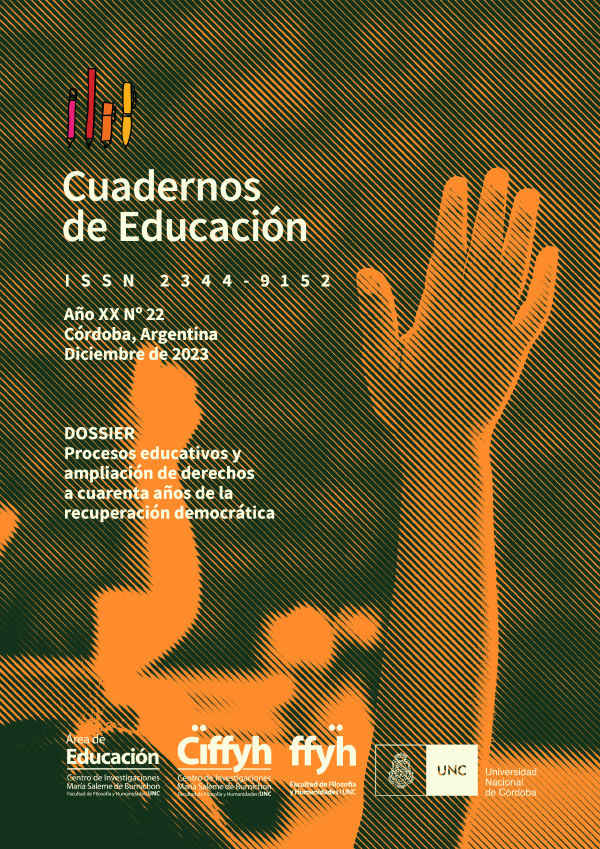University income policies, 40 years after the return to democracy and co-government
Main Article Content
Abstract
The work addresses the entry and permanence of students at the National University of Córdoba (UNC) and, in particular, the Faculty of Philosophy and Humanities (FFyH), taking as reference the 40th anniversary of the end of the dictatorship; university normalization and the democratization of income policies, leaving aside the dictatorial exam and quota system, in the eighties and the creation of Leveling Courses in the nineties, central to the current income policy. We start from Dominguez’s statement regarding the determinations that intersect income policies: “they have been extremely sensitive to changes in political regimes and [to the] relations between the State and Universities” (2010, p. 196) and from Juarros and Martinetto, regarding income models: “they have revolved, with variations, around two entry models (...) direct entry (...) accompanied by introductory courses (...) with a non-eliminatory nature; restricted entry (...) upon passing a selective exam and may or may not be accompanied by a quota” (2008, p. 73). The corpus is made up of university resolutions and UNC statistics. The aim is to demonstrate the influence of successive political regimes, from a restrictive tendency to an inclusive one.
Keywords: University income policies, unrestricted entry, leveling courses.
Article Details
Esta obra está bajo licencia CC BY-SA 4.0
Los/as autores/as pueden realizar otros acuerdos contractuales independientes y adicionales para la distribución no exclusiva de la versión del artículo publicado en esta revista (ej: incluirlo en un repositorio institucional o publicarlo en un libro) siempre que indiquen claramente que el trabajo se publicó por primera vez en esta revista.
Los/as autores/as conservarán sus derechos de autor y garantizarán a la revista el derecho de primera publicación de su obra, el cual estará simultáneamente sujeto a la Licencia de reconocimiento de Creative Commons que permite:
Compartir — copiar y redistribuir el material en cualquier medio o formato
Adaptar — remezclar, transformar y construir a partir del material para cualquier propósito, incluso comercialmente.

